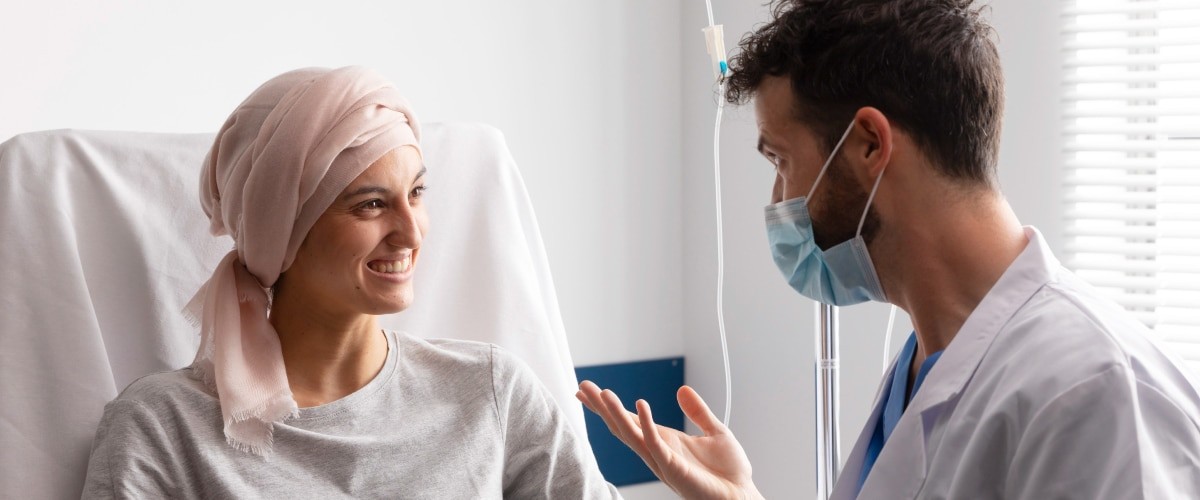
Chemotherapy Side Effects and Enhancing Quality of Life
Going through chemotherapy can be an incredibly difficult and draining experience, both physically and emotionally. The side effects of these powerful cancer-fighting drugs can take a significant toll on your body and overall well-being.
However, there are steps you can take to help alleviate some of the most common side effects and maintain a higher quality of life throughout your treatment journey.
Coping With Chemotherapy Side Effects
Feeling Tired and Lacking Energy
- Prioritise rest and listen to your body. Take naps or breaks when you feel tired, rather than pushing through fatigue.
- Ask for help with daily tasks and responsibilities. Don’t be afraid to let loved ones assist you with chores, errands, or other activities when you’re feeling drained.
- Stay hydrated and nourished. Drink plenty of fluids and eat foods rich in protein and calories to help maintain your energy levels.
- Try light exercise if possible. Low-impact activities like walking or gentle yoga can actually help boost your energy when done in moderation.
- Establish a regular sleep routine. Getting adequate, quality rest is crucial for managing fatigue. Avoid caffeine late in the day and create a calming pre-bed routine.
Nausea and Appetite
- Eat small, frequent meals or snacks instead of large meals. Having something in your stomach can help prevent nausea, but large portions may be too much.
- Avoid foods with strong smells that may trigger nausea. Stay away from cooking odours if possible. Cold foods tend to have fewer offensive smells.
- Stay hydrated by sipping water, broths, or drinks containing calories and nutrients if you can’t eat solid foods. Options like smoothies, milkshakes, or juice can help maintain intake.
- Try bland, easy-to-digest foods like bananas, rice, applesauce, or toast when nauseous. Avoid fried, greasy, or spicy items.
- Don’t force yourself to eat favourite foods that now seem unappealing. Your taste perceptions may change during chemo, so honour your body’s signals about what sounds good.
Fatigue
- Listen to your body and rest when needed. Don’t try to push through extreme fatigue, as this can exacerbate exhaustion.
- Prioritise activities and pace yourself. Break up tasks into smaller chunks and alternate periods of activity with rest breaks.
- Ask for help with daily chores and responsibilities. Allow loved ones to assist with cooking, cleaning, childcare etc. when you lack energy.
- Try light exercise if possible. Low-impact activities like walking or gentle yoga/stretching may actually help boost energy levels when done in moderation.
- Establish healthy sleep habits. Make sure you’re getting adequate nighttime rest and consider short naps/rest periods during the day.
Fever
- Take your temperature regularly and know the signs of fever (100.4°F/38°C or higher). Keep an accurate thermometer at home and know how to use it properly.
- Call your doctor/cancer care team immediately if you develop a fever, even during nights or weekends. A fever can be a sign of a potentially serious infection when your white blood cell counts are low.
- Be prepared to go to the emergency room right away if instructed by your care team or if you are unable to reach them. Fever in a chemotherapy patient requires urgent medical evaluation.
- Know when you are most vulnerable to infections causing fever – typically 7-14 days after a chemotherapy cycle when white blood cell counts drop to their lowest levels.
- Watch for other potential infection symptoms like chills, cough, burning with urination, etc. and report these to your oncologist along with any fever.
Hair Loss
- Prepare yourself mentally. Understanding that hair loss is a potential side effect can help you feel more in control when it happens. Consider cutting your hair short beforehand.
- Use a cooling cap/scalp hypothermia. These caps cool the scalp during treatment and may help minimise hair loss for certain chemotherapy drugs.
- Protect your scalp. Wear sunscreen, hats, scarves or wigs to cover your head and protect your scalp from sun exposure and irritation.
- Consider head coverings. Wigs, turbans, scarves or hats allow you to address hair loss in a way that makes you feel most comfortable.
- Be gentle. Use a soft brush and mild shampoo, and avoid heat styling, dyes or perms which can further damage fragile hair.
Mouth Sores
- Rinse mouth with cool/warm salt water after eating to help soothe pain
- Avoid acidic, salty, dry or crunchy foods that can further irritate sores
- Suck on ice chips or apply oral pain relief medications as recommended
- Practice good oral hygiene but use an extra soft toothbrush
- Notify your cancer team if mouth sores are severe or prevent eating/drinking
Infection
- Practice strict hand hygiene by washing with soap and water frequently
- Avoid crowds and close contact with anyone who is ill
- Take prescribed medications to help prevent infections
- Watch for signs like fever, chills, cough and report immediately
- Avoid potential sources of infection like undercooked foods
Digestive System
- Stay hydrated by drinking plenty of fluids
- Eat small, frequent meals high in protein and calories
- Avoid greasy, fried, spicy or high-fiber foods that can irritate
- Take anti-nausea, anti-diarrheal meds as prescribed
- Notify your team about severe constipation, diarrhea or bleeding
Skin Reactions
- Use mild, fragrance-free soaps and moisturizers
- Protect skin from sun exposure with loose clothing/hats
- Apply cool compresses or prescribed creams for rashes/irritation
- Avoid harsh soaps, roughexfoliants, adhesives on sensitive areas
- Report any severe rashes, peeling, pain or open areas to your team
Exercise
- Engage in light activities like walking as energy allows
- Avoid public gyms/exercise classes to reduce infection risks
- Build in frequent rest periods to combat fatigue
- Stay hydrated before, during and after exercise
- Discuss safe exercise plans with your oncologist
Contact Us
Visiting Hours
OPEN 24 hours 7 days a week.
OPD Timings : Monday to Saturday
( 9:00 AM to 5:30 PM )
Appointments
Emergency
Visit the hospital
MGM Cancer Institute
No 119 & 121, Nelson Manickam Road, Raajeswari Street, Rajaram Mehta Nagar,
Aminjikarai, Chennai – 600029
At MGM Cancer Institute, we believe in curing the fear of cancer first. We understand that battling cancer is not just a physical fight, but a mental and emotional one as well. Our dedicated team is committed to providing exceptional healthcare that improves your overall well-being and eases the anxiety that comes with cancer. With a 150-bed facility in the heart of your city, we are here to support you every step of the way.
© MGM Cancer Institute. All Rights Reserved. Last updated on 20-01-2025.
















